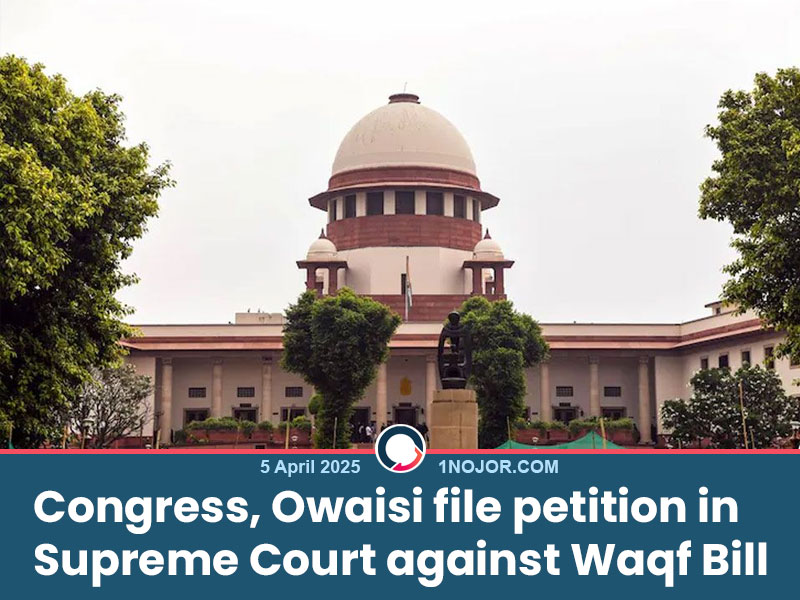The ‘1 Nojor’ media platform is now live in beta, inviting users to explore and provide feedback as we continue to refine the experience.
Following a marathon midnight debate on Thursday, India passed the controversial Wakf Bill. On Friday, Congress MP Mohammad Jawed and AIMIM chief Asaduddin Owaisi filed separate petitions in the Supreme Court challenging the bill, calling it “discriminatory” and a “violation of fundamental rights” of Muslims.
In his petition, Jawed argued that the bill breaches several constitutional provisions, including Article 14 (Right to Equality), Article 25 (Freedom of Religion), Article 26 (Right to Manage Religious Affairs), Article 29 (Cultural and Educational Rights of Minorities), and Article 300A (Right to Property). He emphasized that the law unfairly limits the autonomy of Wakf institutions while maintaining broader freedoms for religious trusts of other faiths. One of the most contentious provisions of the bill mandates the inclusion of non-Muslim members in the formation of Wakf Boards and the Central Wakf Council, which critics argue undermines community self-governance.

The ‘1 Nojor’ media platform is now live in beta, inviting users to explore and provide feedback as we continue to refine the experience.